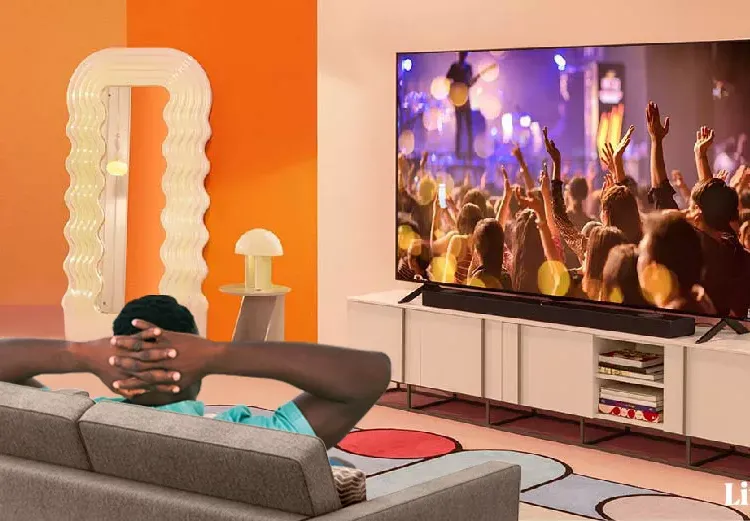- With opportunity and access to funds, I still ask why it’s not clicking,” Sharon Adeleke reflects on business success
- 9th AFRIMA finale: Live updates from red carpet to final win
- Ogun police investigates alleged assault case of singer portable while in custody
- FULL LIST: Rema, Burna Boy, Yemi Alade win big at 9th AFRIMA Awards

Do you often find yourself spending hours on your phone, laptop, tablet, or TV without realizing it? Do you feel like you need to check your messages, emails, social media, or news every minute? Do you struggle to focus on work, hobbies, or relationships because of your tech distractions?
[ad]
If you answered yes to any of these questions, you might be suffering from excessive screen time and this is a common issue with many people in our world today. Screen time is the amount of time you spend using devices that have screens, such as smartphones, computers, TVs, and gaming consoles. While these devices can offer many benefits, such as entertainment, education, communication, and productivity; they can also have negative effects on your physical and mental health if overused.
Some of the risks of excessive screen time include:
- Eye strain, headaches, blurred vision, and dry eyes.
- Neck and back pain, poor posture, and muscle tension.
- Sleep problems, such as insomnia, reduced quality and quantity of sleep, and disrupted Circadian Rhythms
- Increased stress level, anxiety, depression, and mood swings.
- Reduced attention span, memory, creativity, and problem-solving skills.
- Lowered self-esteem, social skills, and empathy.
- Increased risk of obesity, diabetes, cardiovascular disease, and some cancers.
To avoid these problems and enjoy a healthier and happier life, you need to balance your screen time with other activities that are good for your well-being. Here are some tips on how to do that:
- Set a daily limit for your screen time. You can use apps or tools that track your screen time and remind you when you reach your limit. For example, you can use the Screen Time feature on your iPhone or iPad, or the Digital Wellbeing feature on your Android device. You can also use the LG ThinQ app to monitor and control your LG smart devices from your phone.
- Schedule regular breaks from your screens. Every 20 minutes, look away from your screen for 20 seconds and focus on something that is 20 feet away. This is called the 20-20-20 rule and it can help prevent eye strain. You can also take longer breaks every hour or two and do some stretching exercises, walk around, or drink some water.
- Avoid using screens before bed. The blue light emitted by screens can interfere with your body’s production of melatonin, a hormone that regulates your sleep cycle. This can make it harder for you to fall asleep and stay asleep. To prevent this, stop using screens at least an hour before your bedtime. You can also use the Night Shift mode on your iPhone or iPad, or the Night Light mode on your Android device to reduce the blue light from your screen. Alternatively, you can use the LG OLED TV’s Eye Comfort Display feature to enjoy a more comfortable viewing experience with less blue light.
- Create tech-free zones and times in your home. Designate certain areas and periods of the day where you and your family members are not allowed to use screens. For example, you can make your bedroom, dining room, and living room tech-free zones. You can also ban screens during meals, family time, homework time, and bedtime. This can help you focus on other activities and interactions that are more meaningful and fulfilling.
- Find other hobbies and interests that do not involve screens. Instead of spending all your free time on screens, try to explore other ways to have fun and learn new things. For example, you can read a book or a magazine (not an e-book or an online article), play a board game or a card game (not a video game or an online game), listen to music or a podcast (not watch a video or a show), draw or paint (not use a digital art app), cook or bake (not order food online), garden or do some DIY projects (not shop online), etc.
- Seek professional help if you think you have a screen addiction. If you feel like you cannot control your screen time and it is affecting your health, work, school, or relationships negatively, you might have a screen addiction. This is a serious condition that requires professional treatment. You can talk to your doctor or a therapist about it and get the help you need.
Balancing your screen time is not easy in today’s digital world. But it is possible and necessary if you want to live a healthy tech lifestyle. By following these tips and using LG’s innovative products that are designed to enhance your well-being, you can achieve a better balance between your screen time and other aspects of your life.
[ad unit=2]








